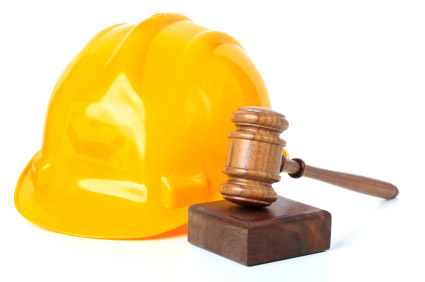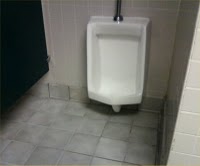Did you know Fire Doors must be inspected annually?
In the United States, people continue to lose their lives in the very settings where they work and often the significant contributing factor are doors. Fire-rated doors are an integral part of a building’s overall fire protection. A properly operating fire door is a key component to stop the spread of deadly fire, smoke, and toxic fumes and gases. Fire doors that are used on a day-to-day basis increase the likelihood of a fire or smoke door not being in optimal condition to protect occupants in the event of a fire is quite high.
Fire doors are very well regulated throughout design, specification and installation of rated openings, including the language of the Life Safety Code, NFPA 80 and the International Building Code. But once a facility has received a certificate of occupancy, the Building Code is closed, and ceases to have effect, as the Fire Code is now in effect for operation and maintenance of the facility. The Life Safety Code now contains language requiring post-occupancy inspections of swinging fire doors and doors in the means of egress.
Fire doors and door hardware are subject to failure due to the constant usage they take in high traffic areas. Constant usage can lead to misalignment of the door which could potentially lead to failure of the door to close in the event of a fire. Other common non-compliant issues are holes or openings in the fire door assembly, improper gaps, missing labels, failure of latching hardware to operate, missing screws, door coordinator operates improperly, non-working self-closing devices, missing gasketing, improper kick plates (protective plates) sizes, improper field modifications, and numerous other problems.
Top Ten Fire Deficiencies from the Door Security and Safety Foundation
The following items are the most commonly observed deficiencies found on swinging fire doors with builders hardware:
1. Painted or missing fire door labels
2. Poor clearance dimensions around the perimeter of the door in the closed position
3. Kick down door holders
4. Auxiliary hardware items that interfere with the intended function of the door barrel bolts and dead bolts, etc.
5. Fire doors blocked to stay in the open position
6. Area surrounding the fire door assembly blocked by furniture, equipment and/or boxes
7. Broken, defective or missing hardware items (latch bolts and/or strike plated, closer arms, cover plates, etc.)
8. Fire exit hardware installed on doors that are not labeled for use with fire exit hardware
9. Missing or incorrect fasteners
10. Bottom flush bolts that do not project into the strike
The National Fire Protection Association (NFPA), The International Code Council (ICC), and The Joint Commission all require the inspection of Fire Doors. The two primary NFPA Codes that have requirements for the maintenance and inspection of fire doors are NFPA 101®, Life Safety Code®, and NFPA 80, Standard for Fire Doors and Other Protective Opening Protectives®.
Applicable Code Excerpts-
The Fire Code of New York State – 2010
– 703.2 Opening protectives. Opening protectives shall be maintained in an operative condition in accordance with NFPA 80. Fire doors and smoke barrier doors shall not be blocked or obstructed or otherwise made inoperable. Fusible links shall be replaced promptly whenever fused or damaged. Fire door assemblies shall not be modified.
The National Fire Protection Association
5.2 Inspections
5.2.1 Fire door assemblies shall be inspected and tested not less than annually, and a written record of the inspection shall be signed and kept for inspection by the Authority Having Jurisdiction (AHJ).
NFPA 101 Life Safety Code
7.2.1.15.2 Fire-rated door assemblies shall be inspected and tested in accordance with NFPA 80, Standard for Fire Door and Other Opening Protectives
For more information, see Fire Door Inspection Steps
For photos of door violations, see http://doorsecuritysafety.org/gallery/photoset.php?set=72157623304650363
Discover more from Helping NYC & Long Island Commercial Tenants, Owners, and Developers
Subscribe to get the latest posts sent to your email.






I was wondering, are all counties in New York required to have 45 minute fire rated doors from Garage to home?
DOES NYS CODE REQUIRE FIRE DOORS BETWEEN THE HOUSE AND AN ATTACHED GARAGE ON A SINGLE FAMILY RESIDENTIAL DEWILLING? IF SO, IS AN AUTOMATIC CLOSING DEVICE ALSO REQUIRED?
The NYS Fire Code, the NFPA 101, and the IBC all refer to the NFPA 80 in regard to the details of inspection and maintenance of Fire Door Assemblies, but Fire Door inspections are not yet mandatory in the State of New York.
The earliest edition of the NFPA 80 that mandates annual testing is the 2007 edition.
The NYS Legislature was due to adopt the 2007 NFPA 80 as the NYS standard back in early 2013.
But efforts to fast-track aid packages for the areas ravaged by Hurricane Sandy pushed all other issues, including the adoption of the 2007 NFPA 80, to the back burner.
To date, April 8, 2014, the 2007 NFPA 80 issue is still on that back burner.
Thanks for sharing the information Richard. Fire door prevents the fire. But to maintain their functionality they should be well maintained and inspected regularly.
It is important that they are regularly inspected and maintained to permit them to perform at their best on the one and only occasion when they are called upon so to do.
Doorsets fitted with hold open devices or swing free type closers should be closed daily, particularly overnight when there is likely to be low building occupancy. For busy 24/7 buildings (e.g. hospitals) fire doors should be closed at least weekly. All fire doors should close effectively from any angle of opening, using only the door closer.
———————-
fire rated glazing systems
Thanks for the info Timothy.